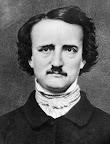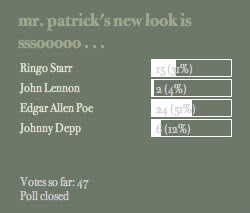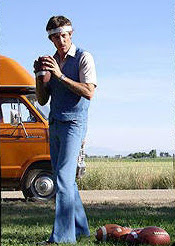8.29.2008
5.27.2008
Misc. loose ends.
- Gatsby essay submissions: As was the case with the Catcher essay, the Turn It In class ID is 2220665 and the password is phony. Do not be alarmed if after you upload your essay the formatting looks different. When I download the files they should retain their original format as you intended them to look.
- Spring cleaning: Please stop by my office before the end of the day Wednesday (I won't be in Thursday or Friday) to pick up your:
- summer reading book, The Remains of the Day.
- Writer's Reference book (you'll need them for the next two years, theoretically).
- Comic Life projects.
5.24.2008
Course Eval.
Please complete the American Lit 07-08 Course Eval by the end of the day Friday, May 30.
Please know that I will take your feedback to heart and it will inform changes to the course for next year.
Thanks, Patrick.
Please know that I will take your feedback to heart and it will inform changes to the course for next year.
Thanks, Patrick.
5.21.2008
Gatsby final exam.
If I were to give a final exam on Gatsby, which I'm not, some of the questions below might end up on it as short answer essay options. I thought you might like to see them. (You know, learning for learning's sake.) Peruse and post comments if you are inclined to do so.
Characters & Characterization.
Theme & Symbol.
Beyond the text.
Characters & Characterization.
- Who is the most affable character in the book? Why?
- How has Nick matured by the end of the novel?
- Why does Nick “like” but ultimately disapprove of Gatsby?
- Who is the “hero” of the novel? Is there a hero?
- The novel is a tragedy, and ultimately, Gatsby is a tragic character. Why?
- Which characters seem to “have it all”? Do they really?
Theme & Symbol.
- What kind of world does the novel portray? Who succeeds—or rather, “survives"—in this world? Why?
- Why are characters who seem to have it all often desperate and immoral? How does this reflect the notion of the American Dream and specifically, the importance of money and material wealth?
- What, then, do you think the Fitzgerald is saying about the American Dream?
- Who—or rather, what—killed Gatsby? (Think beyond the literal; investigate on a figurative level.)
- Gatsby dies by the pool. Why? Wilson dies in the garden. Why?
- The novel begins at the end of spring/beginning of summer. Gatsby meets Daisy in the fall. Gatsby dies in the fall. So, who cares? Why is any of this significant?
Beyond the text.
- Gatsby is a novel of the 1920s, but how might is it also be a novel of today?
- Why do you think Fitz named it The Great Gatsby? Was Gatsby “great”? (At one point, Fitzgerald considered the title Under the Red, White, and Blue. Why?)
- Some have cited the novel as the “Great American Novel.” Do you agree or disagree? Why? What is distinctly “American” about it?
5.20.2008
5.19.2008
Intro/Thesis Exchange and Writing Conferences.
Introduction/Thesis Exchange.
Please exchange introductions with someone in class. Critique each others' intro, especially the thesis. (Use the thesis statements handout for reference! If you no longer have yours, here it is again: Thesis Statements.)
I also encourage you to seek me out (either personally or by email) for intro/thesis feedback. The sooner you approach me the better; I wouldn't want you to get too far invested in the essay before knowing whether or not you have a solid foundation in a thesis.
Writing Conferences.
Please exchange introductions with someone in class. Critique each others' intro, especially the thesis. (Use the thesis statements handout for reference! If you no longer have yours, here it is again: Thesis Statements.)
I also encourage you to seek me out (either personally or by email) for intro/thesis feedback. The sooner you approach me the better; I wouldn't want you to get too far invested in the essay before knowing whether or not you have a solid foundation in a thesis.
Writing Conferences.
- Wednesday: Tutorial: Christopher & Maddie | After school: Taylor
- Thursday: Block 3: Andi & Erik | Block 4: Scott | Block 7: Shaina & Nina | After school: Nik
- Friday: Block 3: John| Block 4: Jack | Block 6: Kelins & Tyler | Block 7: Adam, Becca, & Carly
- Either an electronic or a hard copy of your essay.
- At least two specific aspects of the writing process that you're struggling with, have concerns about, or would like feedback on.
- Specific questions. (Go beyond simple "yes" or "no" questions and vague questions such as "Is my thesis good?" or "Does my paper make sense?")
5.17.2008
5.16.2008
It's all about diction. And the dictionary.
After class today, Christopher and I did some more investigation regarding Nick's "brooding on the old unknown world." Below are the results of our findings, which may help to further illuminate the passage and in turn, help to make connections elsewhere in the text.
While "brood" can be a noun (and even an adjective), in the passage it is used as a verb, which has the following definitions:
brood |broōd|
verb
1 [ intrans. ] think deeply about something that makes one unhappy : he brooded over his need to find a wife.
2 [ trans. ] (of a bird) sit on (eggs) to hatch them. ( ! )
• (of a fish, frog, or invertebrate) hold (developing eggs) within the body.
3 [usu. foll. by over] (of silence, a storm, etc.) hang or hover closely : a winter storm broods over the lake.
ORIGIN Old English brōd, of Germanic origin; related to Dutch broed and German Brut, also to breed . Sense 1 of the verb was originally used with an object, i.e. [to nurse (feelings) in the mind] (late 16th cent.), a figurative use of the notion of a hen nursing chicks under her wings.
While "brood" can be a noun (and even an adjective), in the passage it is used as a verb, which has the following definitions:
brood |broōd|
verb
1 [ intrans. ] think deeply about something that makes one unhappy : he brooded over his need to find a wife.
2 [ trans. ] (of a bird) sit on (eggs) to hatch them. ( ! )
• (of a fish, frog, or invertebrate) hold (developing eggs) within the body.
3 [usu. foll. by over] (of silence, a storm, etc.) hang or hover closely : a winter storm broods over the lake.
ORIGIN Old English brōd, of Germanic origin; related to Dutch broed and German Brut, also to breed . Sense 1 of the verb was originally used with an object, i.e. [to nurse (feelings) in the mind] (late 16th cent.), a figurative use of the notion of a hen nursing chicks under her wings.
5.15.2008
Gatsby essay resources.
- Close annotation example.
- Passage analysis example. (Note: this essay uses a different passage than the one used for the close annotation above.)
Subscribe to:
Comments (Atom)











